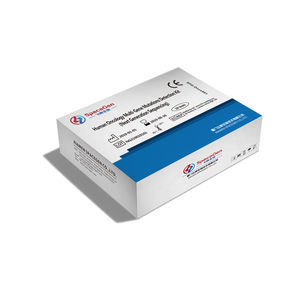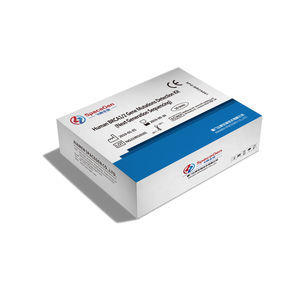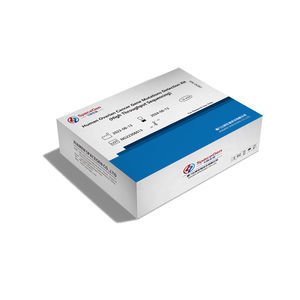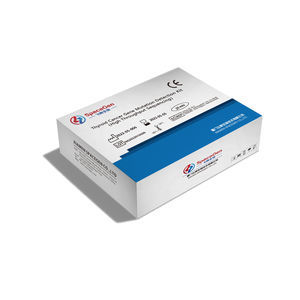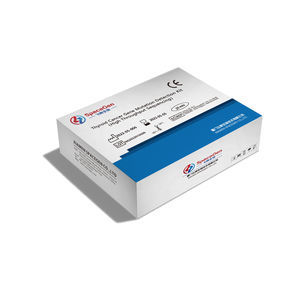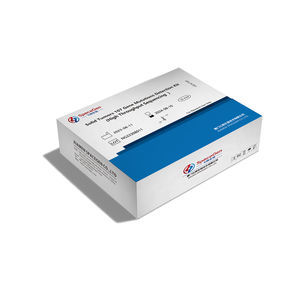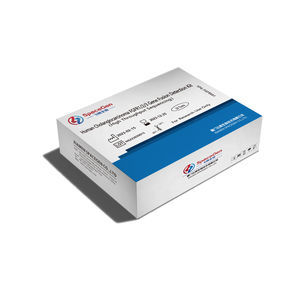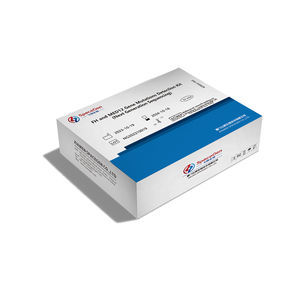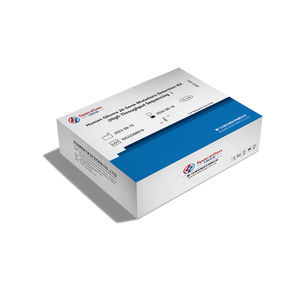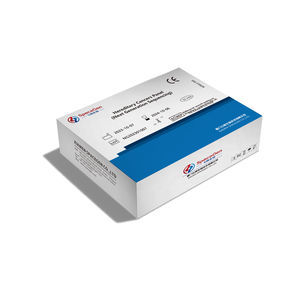

- Company
- Products
- Catalogs
- News & Trends
- Exhibitions
Research detection kit NG223010516geneticchemotherapeutic-related geneSNP
Add to favorites
Compare this product
Characteristics
- Applications
- for research
- Tested parameter
- genetic, chemotherapeutic-related gene, SNP
- Sample type
- clinical
- Analysis mode
- for sequencing
- Result display time
4 h
Description
The selectivity of chemotherapy drugs is relatively weak, as they not only kill cancer cells but also damage normal cells in the body, resulting in adverse drug reactions. The effectiveness of chemotherapy is influenced by individual patient differences, including sensitivity and tolerance to chemotherapy drugs, as well as the inherent toxicity of the drugs themselves. For example, certain genetic polymorphisms in the gene encoding for UGT1A1 can result in a decreased level of glucuronidation of the active metabolite of irinotecan, resulting in accumulation of the drug and increased risk for toxicity.
Nowadays, genetic testing can be used to predict individual responses to specific drugs, assisting patients in selecting appropriate chemotherapy drugs, predicting treatment efficacy, and avoiding serious side effects."
DETECTED GENES
This test kit enables detection of 26 target genes and 33 loci, providing guidance for the evaluation of the efficacy and adverse effects of 19 first-line chemotherapy drug combinations, including toxic side effects.
DETECTION SIGNIFICANCE
By detecting chemotherapeutic drug-related genes in cancer patients, it is possible to determine the sensitivity and toxicity of chemotherapy drugs. This can provide a scientific basis for predicting the efficacy of drugs, improving the specificity of treatment, reducing the risk of toxicity, and offering guidance for clinical medication.
FEATURES & ADVANTAGES
Ease of Use: Based on the independent patent technology RingCap®, Library preparation in 2 steps.
Catalogs
No catalogs are available for this product.
See all of SPACEGEN‘s catalogsRelated Searches
- Assay kit
- Blood assay kit
- Immunoassay assay kit
- Plasma assay kit
- Infectious disease detection kit
- Analysis software
- Molecular test kit
- Whole blood detection kit
- Respiratory infection test kit
- Optical assay kit
- Clinical assay kit
- Fluorescence assay kit
- Viewer software
- Real-time PCR test kit
- Research assay kit
- Laboratory software
- Windows software
- Laboratory detection kit
- Cell assay kit
- Oncology test kit
*Prices are pre-tax. They exclude delivery charges and customs duties and do not include additional charges for installation or activation options. Prices are indicative only and may vary by country, with changes to the cost of raw materials and exchange rates.

